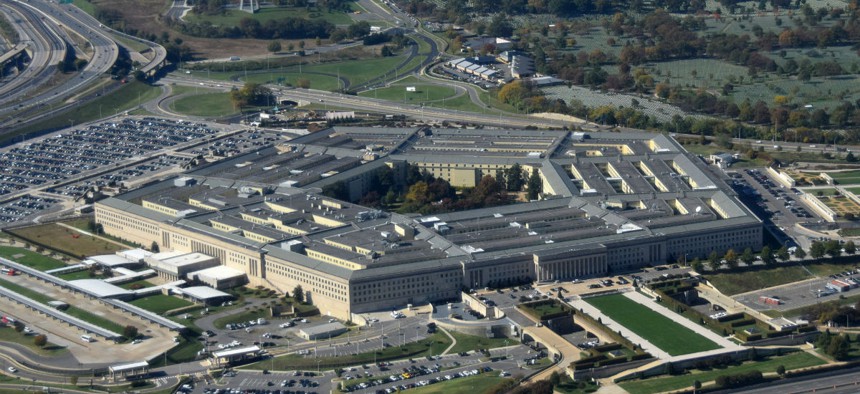Defense Authorization Bill Allows Pilot Program on Curbing Bid Protests
A Senate-proposed “loser pays” mandate on major contracts was watered down.
Buried in the $700 billion fiscal 2018 National Defense Authorization bill that House-Senate conferees unveiled on Wednesday is a compromise on disputed language aimed at reducing the number of time-consuming contractor bid protests.
Contractors, contracting officers and staff of the Government Accountability Office—which adjudicates the protests filed by companies that lose out on an award—had been awaiting the fate of language in the Senate version that would have required companies larger than $100 million in the previous year’s revenues that protest unsuccessfully to pay the costs of processing the protest at Defense and GAO.
Too many “frivolous” protests cause delays in the procurement of weapons systems, the unnamed senators argued.
In a compromise spelled out in the House-Senate report on the NDAA, that provision will be put into effect as a three-year pilot at Defense, with the threshold for companies affected raised from the original $100 million in revenues to $250 million. The three-year pilot would begin two years after the law’s enactment, with results reported to the Armed Services committees within 90 days. The House version of the bill had contained no such language.
GAO took no position on “loser pays,” according to a letter from Comptroller General Gene Dodaro, but he warned that his agency would have to develop new ways to collect the new information and allocate its resources—and it might have to get involved in litigation.
Dan Stohr, a spokesman for the Aerospace Industries Association, which represents the major weapons makers, on Thursday said the compromise does not change his group’s earlier position that “rather than discouraging frivolous bid protests, this provision would create a disproportionate burden on companies that file protests in good faith. They invest significant time and resources to consider the facts very carefully and make an informed business decision whether to protest a particular contract award.”
The Professional Services Council, which represents 400 contractors, has also opposed the provision. In an Oct. 19 letter to senators, the group said the pre-compromise Senate language would “undercut the fundamental purpose of the bid protest process—to hold agencies accountable for following the law and their procurement procedures in a transparent manner.”
Asked on Thursday to comment on the compromise, a council spokesman said the new language was only slightly less concerning, adding that the group will be monitoring the pilot to see the actual meaning of the congressional language aiming to “determine the effectiveness” of the experiment.
Other acquisition-related provisions in the NDAA would restructure the Pentagon’s business operations with the aim of streamlining them and reducing bureaucracy. “The legislation clarifies the role and expands the responsibilities of the [Defense] Chief Management Officer, establishing it as the third most senior position in the Pentagon,” a summary said of the new management post created in the fiscal 2017 NDAA. “The fundamental mission of the CMO will be to manage the enterprise business operations, or shared services . . . using explicit authority to direct secretaries of the military department and the heads of other defense organizations with regard to business reforms,” the summary added.
It limits the number of deputy assistant secretaries of Defense to 48, and trims the number of assistant secretaries from 14 to 13. It also “re-designates the principal deputy undersecretaries of Defense as deputy undersecretaries of Defense in recognition that these are the only deputy undersecretaries of Defense.”
In a nod toward deregulation, the combined bill “reduces unnecessary laws and regulations that limit [Defense] from obtaining the best value to the government and the American taxpayer."
Finally, the bill addresses the Pentagon’s chronic inability to achieve clean books—it had fallen behind in pursuing a 2017 deadline for creating an auditable financial statement. The bill “formalizes and modernizes reporting requirements related to audit as the department moves into its first full financial statement audit this year, requiring clear accountability for progress,” the summary said. “The bill allows the department to stand up a team of private-sector experts with audit experience to make recommendations to the department on how to best achieve a clean audit.”








